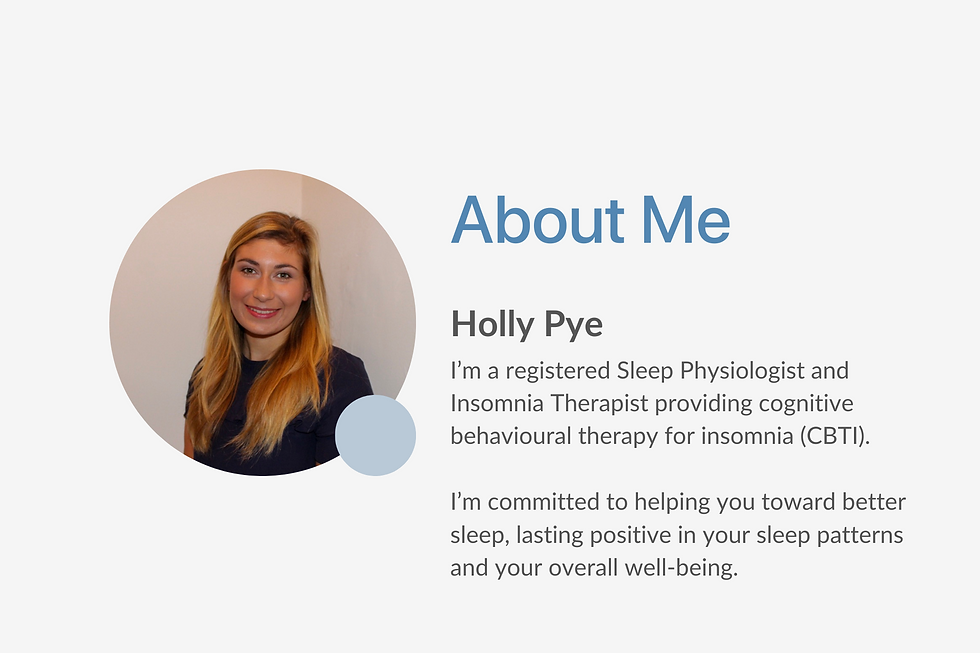Sleep Myths Debunked: Why going to bed at the same time every night is bad for our sleep
- May 1, 2024
- 3 min read

Traditional sleep hygiene advice encourages us to maintain a consistent sleep schedule in order to regulate our internal body clock. However, going to bed at the same time each night can actually contribute to sleep disturbances and worsen insomnia rather than improve it. This seemingly paradoxical situation can arise when the mind and body have learned to resist sleep rather than fall asleep easily.
Over time, our brains form associations between certain activities (the stimulus) and our emotions or behaviour (our response to the stimulus) and these associations help us to form habits. When somebody who typically sleeps well gets into bed, they automatically relax and so can fall asleep within just a few minutes. When they do this night after night, their brain forms the association between getting into bed and feeling asleep quickly. They're rewarded for this behaviour by waking up and feeling well-rested the next day, and so this response becomes automatic when they are exposed to the stimulus again. Over time, good sleepers reinforce their bodies to sleep well, it's not something they have to try to do.
So, why does this mean we shouldn't go to bed at the same time each night?
Well, we all feel different day-to-day depending on our activity levels, our quality of sleep that night, and many other factors. Some nights we might be shattered by 9pm, and other nights we might still feel wide awake at midnight! If we repeatedly go to bed at the same time, whether we're sleepy or not, some nights we'll fall asleep instantly and other nights we could lie there awake for hours because we're just simply not ready to fall asleep yet.
It's common for people who have insomnia to repeatedly go to bed when they aren't genuinely sleepy. If you find yourself doing this, aiming to have an early night and increase your opportunity for sleep, ask yourself how often you actually do end up falling asleep within 15 minutes or so? If your body isn't sleepy and hasn't wound down yet, you won't fall asleep! Instead, it will take a long time to drift off and instead you might find yourself starting to get some racing thoughts or worry about things. This can make you more alert and actually keep you awake for longer than if you'd just stayed out of bed until later on. If this is happening often, your mind might learn to associate getting into bed with alertness and restlessness rather than relaxation and falling asleep because that's what it's being taught to do. This contributes to chronic insomnia.
For people who are struggling with insomnia, a more effective approach involves waiting until you are really feeling sleepy before heading to bed, even if it means you won't get as many hours in bed as you'd like. By doing this, you'll get into bed and be sleepy and relaxed enough to fall asleep within a few minutes, rather than lie there awake for hours. This strategy helps your mind and body to build a positive association between getting into bed and falling asleep easily, which makes it easier to fall asleep and can help to ease any sleep anxiety you might have in the long term.
Fixing your sleep pattern is just one aspect of overcoming chronic insomnia. Cognitive behavioural therapy for insomnia (CBTI) encompasses many different techniques to help support you to get a healthy sleeping routine back again. Find out more about the benefits of CBTI, or get in touch with a sleep physiologist to find out what's involved and answer any questions.






Comments